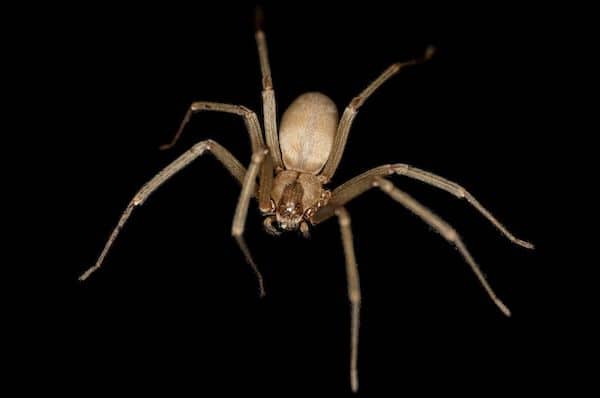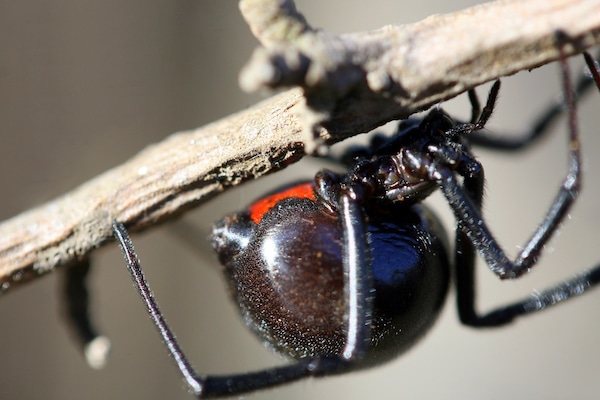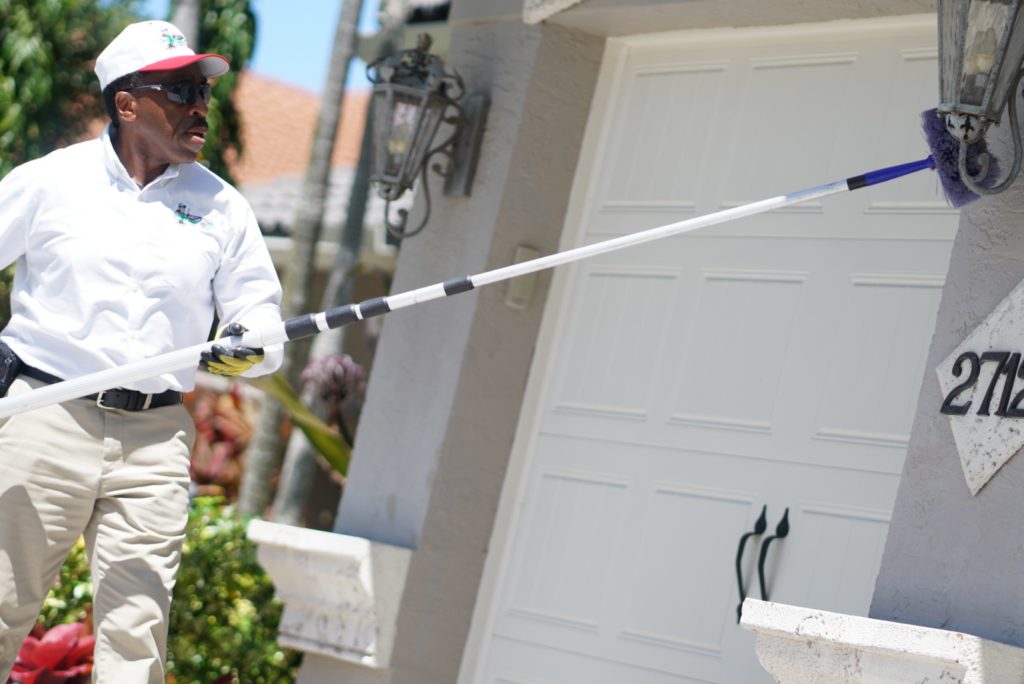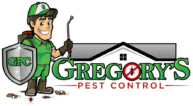Spider Exterminator Services
We’ll Take Care of Your Spider Problems, Guaranteed!
Get in touch for spider pest control services.
Spiders range in size, shape, and color, with some of their bites being harmless—and others being venomous. Although the number of species with dangerous bites is small, why take a chance? Gregory’s Pest Control can remove spiders from your South Florida home, protecting you and your family.
Spiders in South Florida
Fifty-nine different species of spiders have been spotted in our state, with the Florida Department of Agriculture and Consumer Services noting how two main species are venomous. They are recluse spiders and widow spiders.
Recluse Spiders

These spiders aren’t native to our state, but populations of three species have been found in locations in Florida. These include the brown recluse, with its trademark dark mark in a violin shape; the Mediterranean recluse, which looks similar to the brown variety, but with a lighter violin hue and parallel sides; and the Chilean recluse, the most dangerous variety of this type of spider. This recluse also has a violin-shaped mark, dark with a wider front.
Recluse spiders can be found in or under objects, often not easily seen. They’ll even hide in clothing that’s been not worn for a period of time. To protect yourself, don’t reach where you can’t see, or at least wear gloves.
Widow Spiders

These spiders, which are native to Florida, also like to be hidden in less visible places, from rocks and logs to grills and sandboxes. Four species can be found in Florida, including the southern black widow, the northern black widow, the red widow, and the brown widow.
In general, females are about 8-15mm long, with males much shorter, even as small at 2 mm. When a widow spider bites, it’s usually a female, and it’s often when she is trapped near human skin.
When a bite occurs, the venom spreads through a person’s lymphatic system within one to three hours, causing significant pain, along with cramping, nausea, vomiting, hypertension and more. These symptoms can last for up to five days if not medically treated.
Other species of spiders, fortunately, are less dangerous, but most people still don’t want them in their Florida homes.
Spotting Spiders in Your Home

Sometimes, the spiders are large enough or numerous enough that it’s easy to see them. Other times, they simply hide too well. That, though, doesn’t mean that you can’t find other evidence of their presence. For example, if you vacuum up spider webs and they come right back, then there are spiders doing the work. If you find spider eggs, then you know there’s an active infestation in your Florida home.
You can also (carefully) check potential hiding spots, whether that’s in the eaves of your home or by windows, in the basement, crawl spaces, attics and so forth. Think of places that are dark and somewhat out of the way, and they can be ideal for spiders.
Plus, if you know that you have an infestation of another kind of pest, you may well find spiders nearby. After all, those other pests are a potential food source for them.
Keeping Spiders Away
If you don’t have a spider population in your home, you can help to keep them away by:
- Spraying essential oils, such as peppermint, lavender, rose, cinnamon, or tea tree
- Spraying a 50/50 mix of white vinegar and water in corners and cracks; this can damage varnished surfaces
- Use plastic storage containers rather than cardboard
- Vacuum and dust often
- Keep piles of leaves, woodpiles, compost and more away from your home’s foundation
When to Call a Spider Exterminator
If you find more than a spider or two in your home, or see these other signs, it can make sense to contact a professional exterminator for an inspection. Highly trained technicians at Gregory’s Pest Control will perform a full 20 point inspection of your home and then share results with you.
We’ll then provide personalized pest control services for your South Florida home, including our perimeter defense service.
Contact Gregory’s for Spider Pest Control Services
Our company is family-owned and operated, just as it has been since our founding in 1985. We believe in forming personal relationships with our customers, providing quality services and treatment plans that are safe and effective. In fact, we focus on protecting our customers’ homes and families, just as we do our own. Satisfaction, 100% guaranteed!
Our service area includes the communities of Weston, Davie, Coral Springs, Pemboke Pines, and the surrounding cities—with a 100% satisfaction guarantee! To get started, contact us online or call (954) 401-9286 today!




